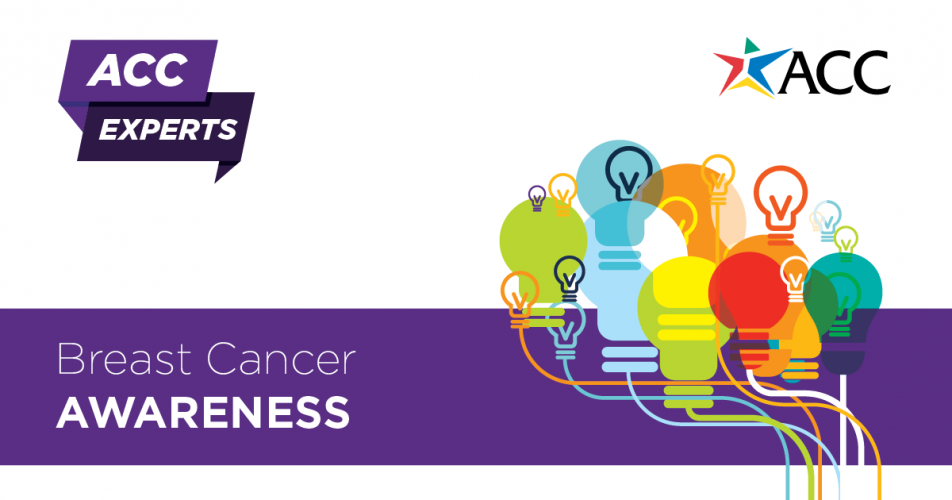ACC Experts: Nine things to know about Breast Cancer
Written by: Tama Barrows RT.R.M.CT and Pamela Ivey RT.R.M, ACC Radiology graduates
October is breast cancer awareness month, and it’s when we like to remind everyone of the importance of women’s breast health. Here are the top nine things you need to know:
1. The main risk factors for breast cancer are being female and getting older. Most breast cancers occur in women 50 and older. The average age is 62 for breast cancer diagnoses.
2. For women under the age of 40, breast cancer is the leading cause of death.
3. Watch for warning signs and symptoms including:
-
Change in look or feel of the breast or nipple and nipple discharge. (Ex: a hard knot, swelling, warmth/redness or darkening of the breasts).
-
Change in shape or size of the breast (Ex: dimpling of the skin).
-
New pain in one spot that doesn’t go away.
-
Itchy/scaly/rash on the nipple or retraction of the nipple. https://komengreatercetx.org/
4. It is recommended by the American Cancer Society that all women begin annual mammograms starting at the age of 40. However, regardless of age or gender, if you have signs and symptoms you should visit a doctor. https://www.cancer.org/
5. Perform your own self-breast exam at least once a month. This link below will help guide you on self-breast exams. https://www.nationalbreastcancer.org/breast-self-exam
6. Men can get breast cancer too! Less than 1 percent of all breast cancers occur in men. The average age for breast cancer to occur in men is 68. www.susangkomen.com
7. When visiting your mammographer, it is important to be prepared. Do not wear deodorant, powders, perfume, or lotions on or near your breast area including underarms.
8. When getting a mammogram, be prepared to remove clothing and jewelry upon your arrival.
9. Come ready to answer all questions and disclose any information regarding your breasts. You may be asked about weight changes or surgeries. Weight changes can either decrease or increase breast tissue and comparisons from previous years may be different. Surgeries such as pacemakers for the heart can also conflict with positioning during a mammogram.
For more information on getting started and to explore ACC’s Diagnostic Medical Imaging - Radiology Program, visit austincc.edu/radiology.
